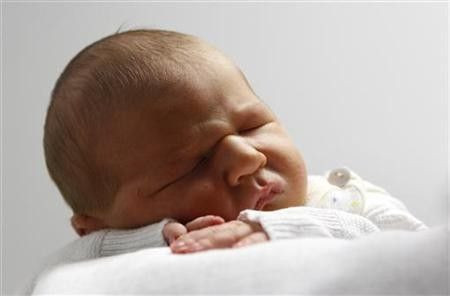Breast Milk Sold Online May Cause Threats to Infants’ Health

Experts say that milk in the online market can put infants at risk of developing "dangerous" health conditions, such as infection. Although breast milk is the most highly recommended source of infant nutrition, many mothers choose not to breastfeed, or are plainly not able to do so.
This is probably the reason why a number of web forums where mothers can buy human breast milk for their babies have sprouted successfully in the US and now, in the UK. The selling price of breast milk in the UK varies. Some sell it for £1 for an ounce, whilst others it £5 for 100ml.
Onlythebreast.co.uk is one of the Web sites this trending practice on breastmilk distribution. Mothers provide basic information about themselves, including essential details of their antenatal health practices such as smoking, drinking and taking drugs. They also provide interesting headlines in their posts, such as "Dairy-free breast milk for sale – Dagenham," and "Men Wanting Milk," as marketing strategy. Some have also taken their selling efforts to Facebook, with the development of a certain page named, Human Milk 4 Human Babies.
The British Medical Journal warns the public that there is no guarantee that these online sellers were medically screened or are deemed appropriate to have "safe" breast milk. Furthermore, experts say that milk being sold online may have been pasteurised.
Another area of concern is whether the breast milk were and handled correctly by the selling party and the courier or personnel who delivered the milk. According to an investigation, 25 out of 102 breast milk bought online were not frozen, and were contained in damaged packages.
Although the UK have existing legit milk banks, these facilities do not have the full capacity to supply all babies, particularly those born premature or have existing medical conditions during birth. “We advise all parents to be aware of the risks involved in feeding a baby with another mother’s milk and before doing so to consult a qualified healthcare professional,” said Gillian Weaver, manager of long-running milk banks in Queen Charlotte’s and Chelsea Hospital in London. She also iterates that comprehensive assessment of breast milk donors should be performed prior to any forms of donation.
The authors of the research, Sarah Steele, an expert in public health at Queen Mary University, and GP Dr Jens Foell, explain in the BMJ, “When breast milk is screened and treated appropriately … it remains second to a mother’s own milk as best for infant feeding. At present, milk bought online is a far from ideal alternative, exposing infants and other to microbiological and chemical agents. Urgent action is required to make this market safer.”The two authors now encourage healthcare providers to provide sufficient health education to the public regarding this health concern.
The European Milk Banking Association and the Human Milk Banking Association of North America - two of the major regulatory bodies that handle milk banks are also highly concerned about this online trend. Adults also take in breast milk as some claim that it helps to treat cancer, and is an excellent source of protein. Although these are not medically proven yet, the increasing popularity of breast milk amongst adults should all the more instigate further investigation of this ‘"milk-sharing" practice.
To contact the writer, email rinadoctor00@gmail.com





















